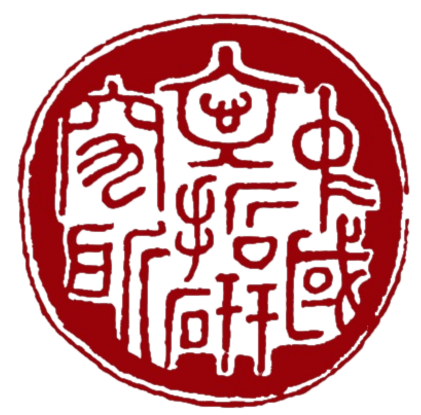
何建興
研究員
2014 - 2017 科技部傑出研究獎
2011 - 2014 教育部特殊優秀人才彈性薪資獎勵
研究領域: 佛教哲學、印度哲學
Email : hochg at sinica.edu.tw
年輕時曾不自量力以為,自己可以兼容並治中國、西方與印度三大哲學傳統。大學畢業後負笈印度,攻讀佛教哲學與印度哲學,學思方向大略確定。我非佛教徒,卻因緣際會地以佛教哲學為個人的主要學術領域,返台後更長年於南華大學宗教所任教。無論如何,志趣所在一直是哲學探究。加入中研院中國文哲所給予自己更為自由廣闊的空間,「攄意乎宇宙之外,銳思於毫芒之內」,或能無愧於探尋真實理地的哲學初衷。
早年研究印度佛教知識論、邏輯與語言哲學,近年則措意中國佛教三論宗或中觀學統。我雖研究傳統哲學,目的並不是哲學史的,而是關切傳統哲學中具有現代價值與未來性的思想理論。中國中觀對於存在不定性與概念相待性的強調,或可以透過哲學分析與理性重構,開展為富含哲學理趣的存在觀,以同當代西方哲學的相應理論比觀抗衡。另方面,印度教哲學家Bhartṛhari《字句論》(Vākyapadīya)一書語言思想豐富,其對於字詞指涉作用的見解,應可以和大乘佛教、中國哲學的語言思想匯合,建構可稱為「指示」的語言表達模式,或能另闢蹊徑地揭顯語言與實在的特殊連繫。當然,這些議題還有待深究,未來成果良窳考驗研究者的能力與用心。山上有峰雲幾重,波間無路道縱橫,為學之登高行遠,想必艱難險阻而又契機處處。
- 2022.5 - 迄今 中央研究院中國文哲研究所研究員
- 2017.2 - 2022.4 中央研究院中國文哲研究所副研究員
- 2014.7 - 2017.1 南華大學宗教學研究所教授
- 2005.2 - 2014.6 南華大學宗教學研究所副教授
- 2001.8 - 2005.1 南華大學宗教學研究所助理教授
- 2000.8 - 2001.7 南華大學生死學研究所助理教授
- 1999.8 - 2000.7 南華大學通識教學中心助理教授
- Ho, Chien-hsing (Mar. 1999). Sense Experience and Language in the Indian Classical Buddhist, Nyāya and Grammarian Philosophies. Ph.D. Thesis, Department of Philosophy, University of Delhi.
- Ho, Chien-hsing (Mar. 1995). What do we see? An Essay on Dignāga’s Concept of the Object of Perception. M.Phil. Thesis, Department of Philosophy, University of Delhi.
- Chien-hsing Ho, 2024, “Worldly Indeterminacy and the Provisionality of Language”, Australasian Journal of Philosophy, 102(4), 896-904. (A&HCI, Scopus)
- Chien-hsing Ho, 2023, “Can the World Be Indeterminate in All Respects?”, Ergo, an Open Access Journal of Philosophy, 9, 584-602. (A&HCI)
- Chien-hsing Ho, 2022, “The Notion of Apoha in Chinese Buddhism”, Dao: A Journal of Comparative Philosophy, 21(2), 283-298. (A&HCI, Scopus)
- 何建興,2021,〈融合哲學的意義與價值〉,《中國文哲研究通訊》,31(3), 159-171。
- Chien-hsing Ho, 2020, “Ontic Indeterminacy: Chinese Madhyamaka in the Contemporary Context”, Australasian Journal of Philosophy, 98(3), 419-433. (A&HCI, Scopus)
- Chien-hsing Ho, 2021, “Causation and Ontic Indeterminacy”, Res Philosophica, 98(1), 43-61. (A&HCI, Scopus)
- Chien-hsing Ho, 2016, “Interdependence and Nonduality: On the Linguistic Strategy of the Platform Sūtra”, Philosophy East & West, 66(4), 1231-1250. (A&HCI)
- Chien-hsing Ho, 2014, “Meaning, Understanding, and Knowing-what: An Indian Grammarian Notion of Intuition (pratibhā)”, PHILOSOPHY EAST & WEST, 64(2), 404-424. (A&HCI)
- Chien-hsing Ho, 2013, “Ontic Indeterminacy and Paradoxical Language: A Philosophical Analysis of Sengzhao's Linguistic Thought”, DAO: A JOURNAL OF COMPARATIVE PHILOSOPHY, 12(4), 505-522. (A&HCI)
- 何建興, 2013, “Ontic Indeterminacy and Paradoxical Language: A Philosophical Analysis of Sengzhao's Linguistic Though”, DAO: A JOURNAL OF COMPARATIVE PHILOSOPHY, 12(4), 505-522. (A&HCI) (IF: ; )
- 何建興, 2012, “One Name, Infinite Meanings: Jizang's Thought on Meaning and Reference”, JOURNAL OF CHINESE PHILOSOPHY, 39(3),436-452. (A&HCI) (IF: ; )
- Chien-hsing Ho,, 2012, “The Nonduality of Speech and Silence: A Comparative Analysis of Jizang’s Thought on Language and Beyond”, DAO: A JOURNAL OF COMPARATIVE PHILOSOPHY, 11(1), 1-19. (THCI) (IF: ; )
- Chien-hsing Ho, 2012, “One Name, Infinite Meanings: Jizang's Thought on Meaning and Reference”, JOURNAL OF CHINESE PHILOSOPHY, 39(3), 436-452. (A&HCI)
- Chien-hsing Ho, 2012, “The Nonduality of Speech and Silence: A Comparative Analysis of Jizang’s Thought on Language and Beyond”, DAO: A JOURNAL OF COMPARATIVE PHILOSOPHY, 11(1), 1-19. (A&HCI)
- 何建興。2015年6月。〈在哲學探究的道路上〉。《人文與社會科學簡訊》。第16卷第3期。頁98-101。
- 何建興。2007年6月。〈學位論文寫作要領---兼談宗教哲學方法〉。《世界宗教學刊》。9期。頁153-171。
- 何建興,2022,〈梁漱溟的印度文化詮釋——評論與反思〉,何建興、楊德立編,《文化詮釋與諸傳統之交涉》,頁265-288,台北市:中央研究院中國文哲研究所。
- Chien-hsing Ho, 2020, “Paradoxical Language in Chan Buddhism”, editor(s): Yiu-ming Fung, Dao Companion to Chinese Philosophy of Logic, pp. 389-404, Cham, Switzerland: Springer Nature.
- Chien-hsing Ho, 2018, “The Nonduality of Motion and Rest: Sengzhao on the Change of Things”, editor(s): Youru Wang, Sandra A. Wawrytko, Dao Companion to Chinese Buddhist Philosophy, pp. 175-188, Dordrecht: Springer.
- Chien-hsing Ho, 2014, “Emptiness as Subject-Object Unity: Sengzhao on the Way Things Truly Are”, editor(s): JeeLoo Liu, Douglas Berger, Nothingness in Asian Philosophy, pp. 104-118, New York: Routledge.
- Chien-hsing Ho, 2014, “The Way of Nonacquisition: Jizang’s Philosophy of Ontic Indeterminacy”, editor(s): Chen-kuo Lin, Michael Radich, A Distant Mirror: Articulating Indic Ideas in Sixth and Seventh Century Chinese Buddhism, pp. 397-418, Hamburg: Hamburg University Press.
- 何建興,2014,〈書評:《空性與方法:跨文化佛教哲學十四論》〉,《中國文哲研究集刊》,第45卷,頁207-214。

